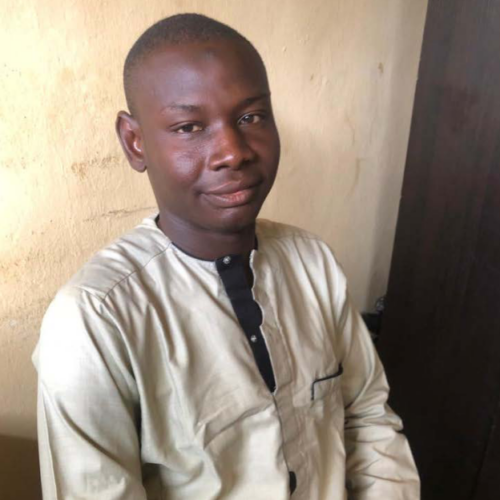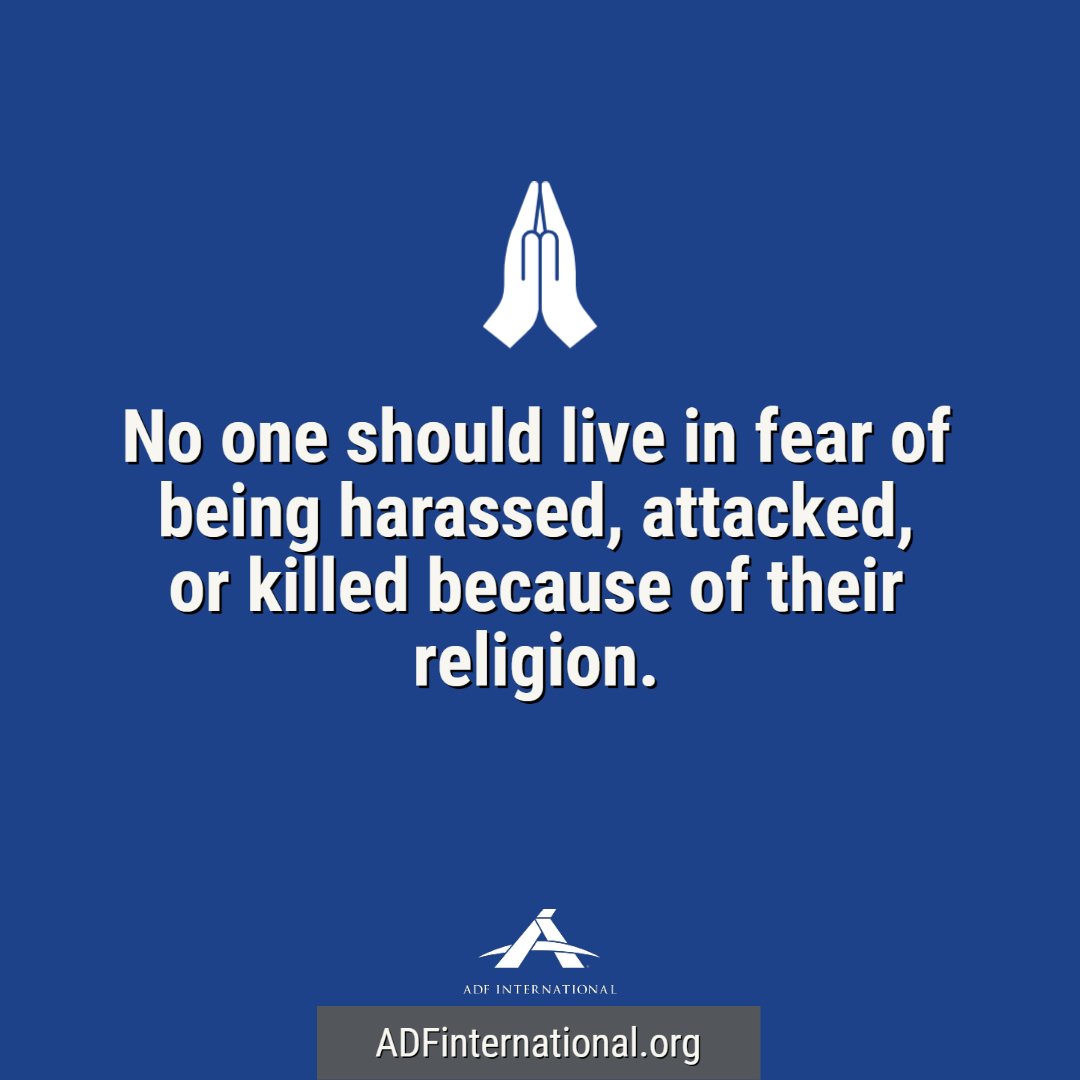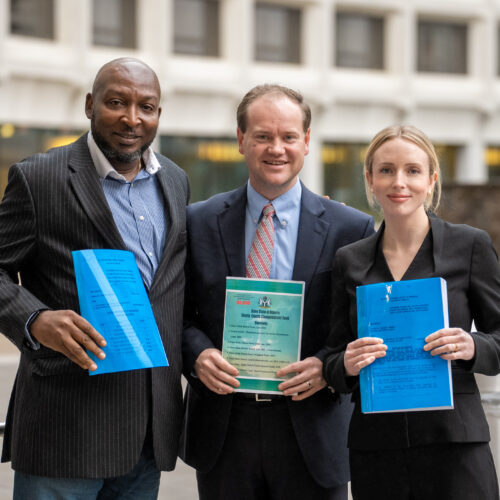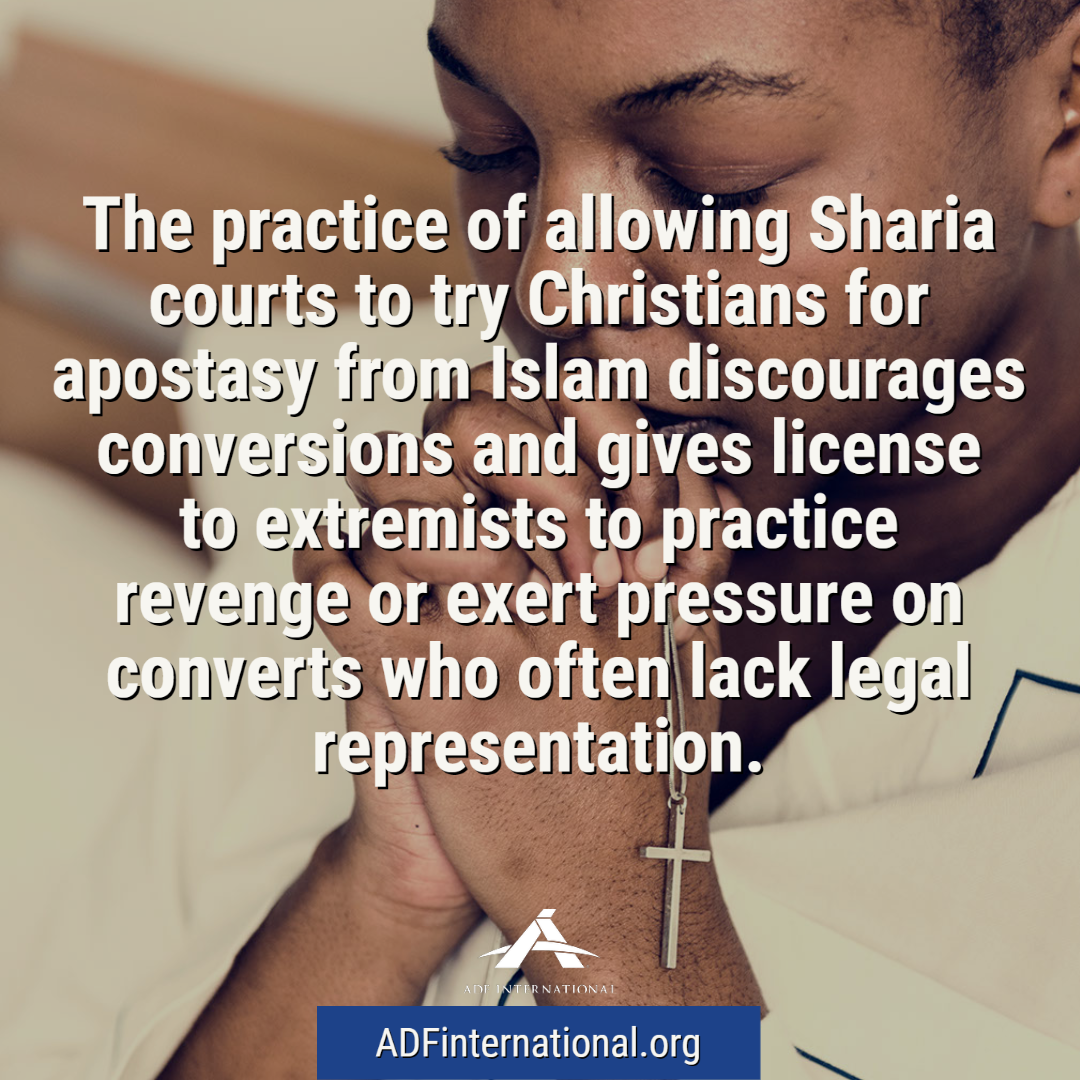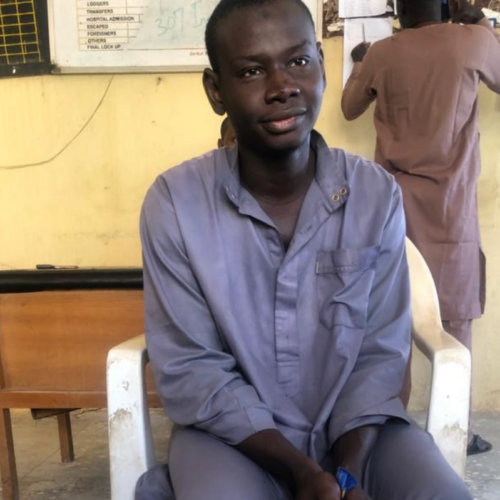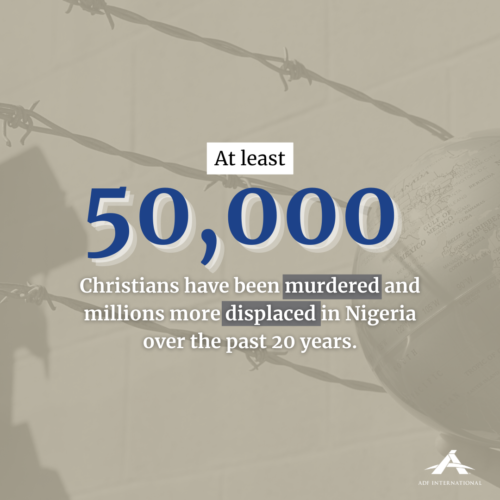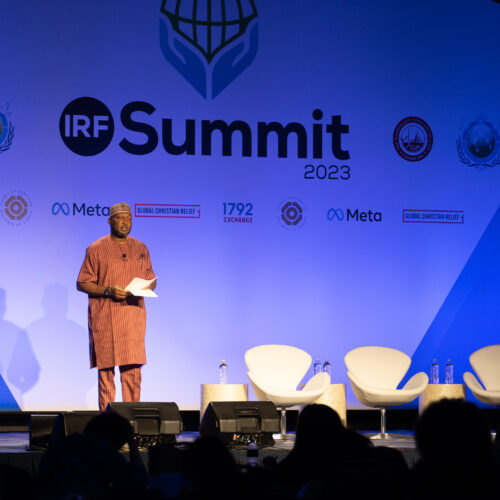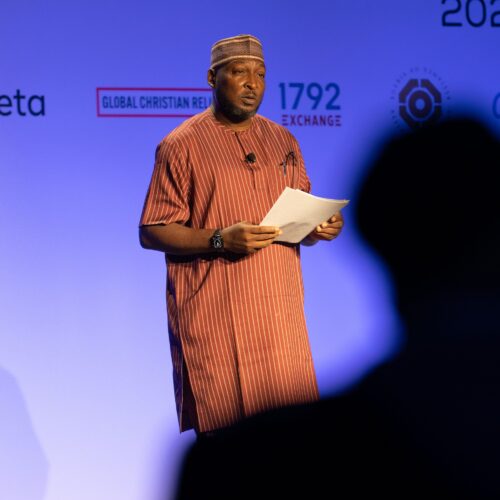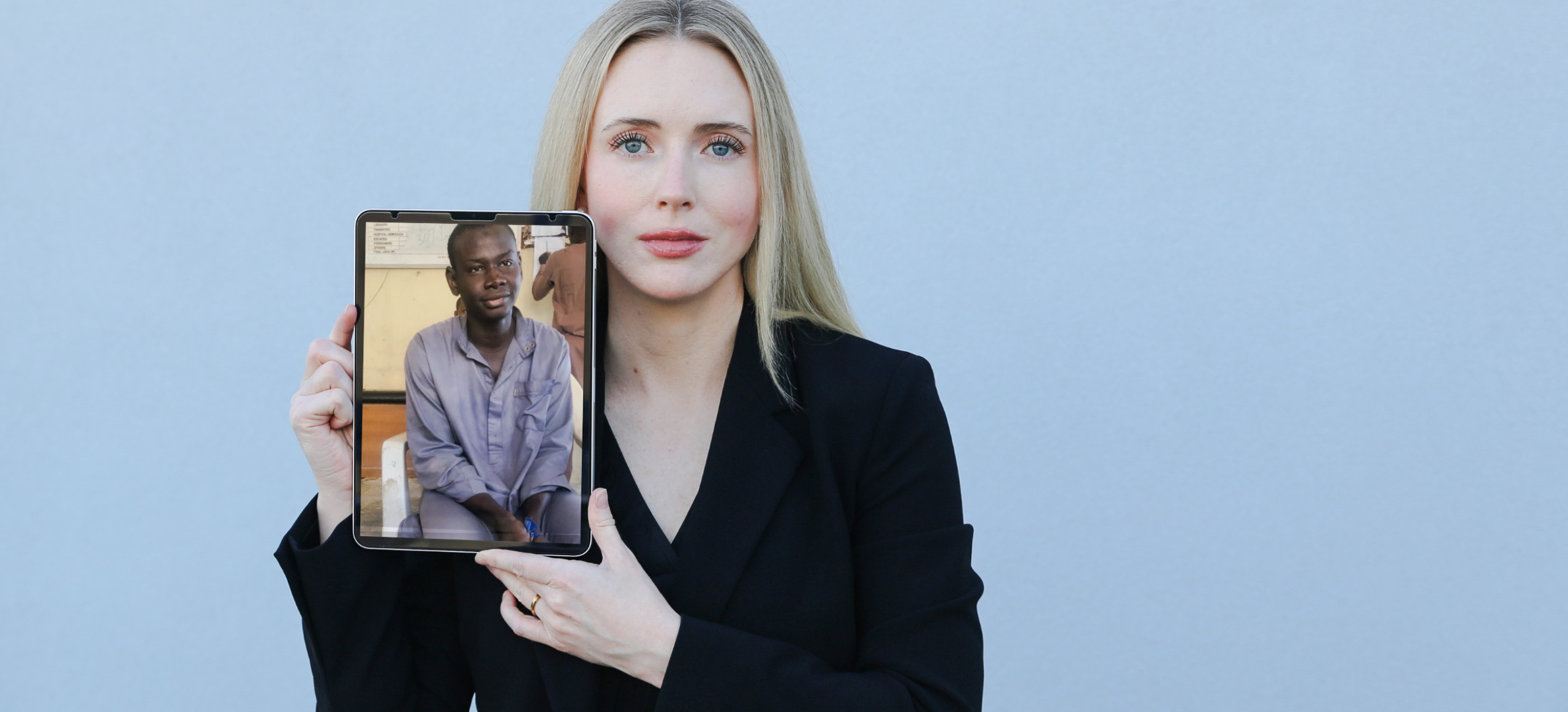
What if you got the death penalty for sharing WhatsApp audio messages?
This is the reality for Yahaya Sharif-Aminu, a Nigerian musician. But his case is now before the Supreme Court of Nigeria.
Will you help us release him and end blasphemy laws?

Save Yahaya and help overturn blasphemy laws now!
For Bank Transfers:
ADF International Austria gemeinnützige GmbH
IBAN: AT45 2011 1829 1208 6402
BIC: GIBAATWW
Payment Reference: ‘Website Donation to ADF International’
ADF International projects around the world are made possible by your generous support. Donations received by ADF UK will be used in compliance with UK law. Please visit https://adfinternational.org/en-gb/privacy-policy for a full overview of our data protection policy.
For Bank Transfers:
ADF International Austria gemeinnützige GmbH
IBAN: AT45 2011 1829 1208 6402
BIC: GIBAATWW
Payment Reference: ‘Website Donation to ADF International’
18 May 2023
Joint letter by international and Nigerian human rights advocates: Release Yahaya Sharif-Aminu immediately
“Democracy cannot function when the most basic freedoms are not protected. And as the largest democracy in Africa, Nigeria’s example matters.”
Your Donation helps:
Cover legal fees
Partnership
Advocacy

What are Blasphemy Laws?
Blasphemy laws are laws that punish individuals for speech that others find offensive towards their own beliefs or sacred symbols. They are found in many countries that implement Islamic Sharia law. They are used to punish and persecute religious minorities, including some minority Muslims like Yahaya. Everyone has the right to freely exercise their religion. But blasphemy laws violate religious freedom, persecute individuals for peacefully expressing their beliefs and punish people of faith for sharing their convictions.
These laws are a significant driver of social tensions and can lead to brutal mob violence. This has life-threatening consequences. Thirteen (13) Christians are being killed every day in Nigeria because of their faith. One of them, the Christian student Deborah Emmanuel Yakubu, was stoned, beaten to death, and burned after blasphemy accusations.
She became globally known as a victim of blasphemy accusations.
In part due to the official blasphemy laws in Nigeria, religious persecution is particularly severe in the West African country. In 2022, approximately 90% of the Christians that were killed for their faith worldwide were Nigerian.
With support from ADF International, Yahaya is now challenging the constitutionality of the Sharia blasphemy law at the Supreme Court of Nigeria.
What's at Stake Here?
Blasphemy laws are in clear breach of international human rights. Moreover, they are also in contradiction to the Nigerian constitution, which guarantees religious freedom. Yahaya’s Supreme Court appeal challenges the constitutionality of the draconic blasphemy law of the Kano State, his home. A victory has the potential to overturn Sharia-based blasphemy laws in Northern Nigeria.
Nigeria has immense influence throughout Africa and the Muslim world. The case is an unprecedented opportunity to lead the way towards abolishing blasphemy laws that plague religious minorities around the globe. The precedent-setting case, therefore, has the potential to improve the human rights situation for the 200 million citizens of Nigeria, but also many in other countries.
The court will also determine Yahaya’s future. In 2020 he was sentenced to death, and while his conviction was eventually overturned, he has been ordered to face a retrial under the same death penalty blasphemy law. His life is still in danger. The governor of Kano State already said at an earlier stage, “I will not waste time in signing the warrant for the execution of the man who blasphemed.”
We are working to save Yahaya’s life and to make sure fundamental rights are protected for him and all people in Nigeria.
Will you support Yahaya?
Blasphemy laws are in clear breach of international human rights. Moreover, they are also in contradiction to the Nigerian constitution, which guarantees religious freedom. Yahaya’s Supreme Court appeal challenges the constitutionality of the draconic blasphemy law of the Kano State, his home. A victory has the potential to overturn Sharia-based blasphemy laws in Northern Nigeria.
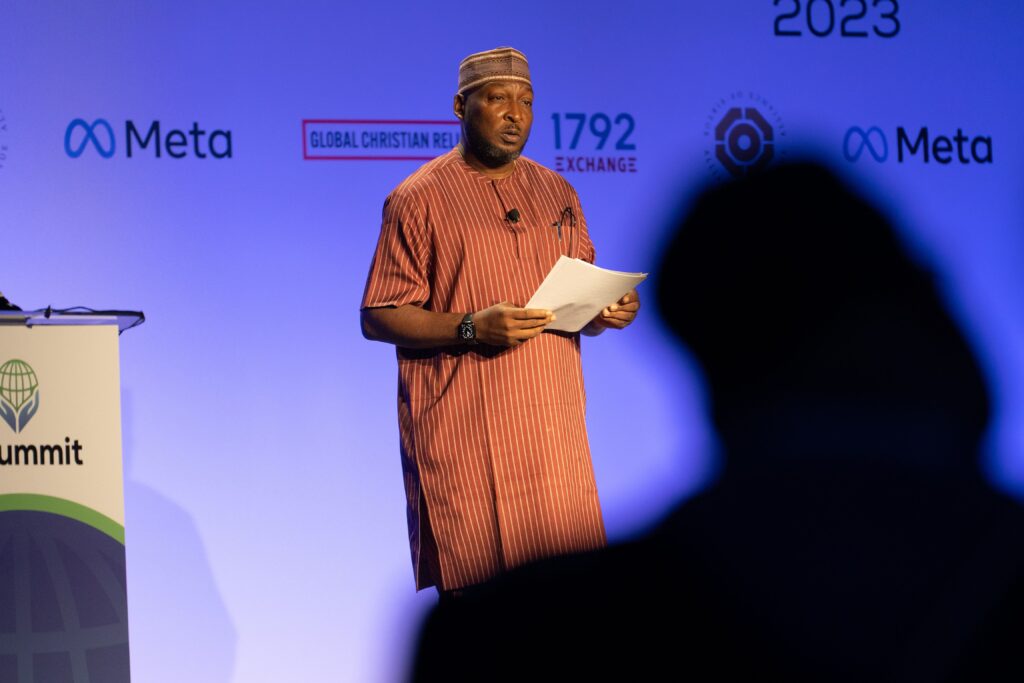
Nigeria has immense influence throughout Africa and the Muslim world. The case is an unprecedented opportunity to lead the way towards abolishing blasphemy laws that plague religious minorities around the globe. The precedent-setting case, therefore, has the potential to improve the human rights situation for the 200 million citizens of Nigeria, but also many in other countries.
The court will also determine Yahaya’s future. In 2020 he was sentenced to death, and while his conviction was eventually overturned, he has been ordered to face a retrial under the same death penalty blasphemy law. His life is still in danger. The governor of Kano State already said at an earlier stage, “I will not waste time in signing the warrant for the execution of the man who blasphemed.”
We are working to save Yahaya’s life and to make sure fundamental rights are protected for him and all people in Nigeria.
Will you support Yahaya?

Let's End Blasphemy Laws Together.
Images and Infographics
